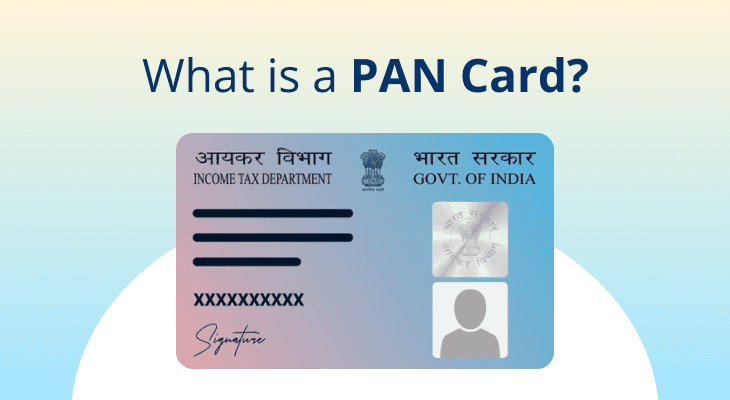
Table of content
- Education loans in India
- General eligibility requirements for education loans
- Specific criteria set by leading banks
- Role of co-applicants in education loans
- Collateral requirements
- Documentation needed for the loan application
- Tips to improve eligibility for education loans
- Common challenges in meeting eligibility criteria
- Conclusion
Eligibility Criteria for Availing Education Loans in India
Education loans in India
Education loans are a form of credit that students or their parents can avail of to pay for educational expenses. These loans enable you to pursue higher education even if you do not have the funds available upfront. However, banks follow specific eligibility criteria before sanctioning such loans. Understanding these requirements and preparing accordingly can improve your chances of approval.
Let’s explore what these education loan eligibility criteria typically include in this article.
General eligibility requirements for education loans
Here are the general education loan eligibility requirements that most lenders mandate in India:
- You must be a resident of India
- You must be between 18 and 35 years old
- You must have been admitted into a recognised educational institution in India or abroad
- The co-borrower, who is typically a parent or guardian, must have a steady source of income
Specific criteria set by leading banks
Apart from the general education loan eligibility criteria listed above, each lender can have their own terms and conditions for approving the loan. Hence, it is important to understand the specific criteria set by each bank. Here is a breakdown of the requirements imposed by some leading banks in India:
HDFC Bank
- The applicant must be an Indian citizen
- The applicant must be between the ages of 16 and 35 years
- The applicant should have secured admission to a higher education course in India or abroad through an entrance test or merit-based selection process
- The applicant should be enrolled in a graduate postgraduate degree or postgraduate diploma course from a recognised institution approved by the University Grants Commission (UGC), the Indian Council of Medical Research (ICMR), the All India Board of Management Studies (AIBMS), the All India Council for Technical Education (AICTE), or other similar bodies
Axis Bank
- The applicant should be an Indian resident
- The applicant must be between 16 and 35 years of age
- The applicant should have secured admission to a higher education course in India or abroad through an entrance test or merit-based selection process
- The applicant should pursue graduate, postgraduate, or diploma courses recognised by the UGC, AICTE, AIBMS, ICMR, or others
- The applicant should have a co-applicant, such as a parent, guardian, spouse, or parent-in-law, for all full-time programs
ICICI Bank
- The applicant should be an Indian citizen
- The applicant should be between 16 and 35 years old
- The applicant should have a good academic record
- The applicant should have completed 10 plus 2 (12th) higher secondary education or an equivalent diploma
- The applicant should pursue a graduate degree, a postgraduate degree, or a postgraduate diploma in professional education
- The applicant should be admitted to a listed, recognised, and accredited institution in India or abroad
Kotak Mahindra Bank
- The applicant should be an Indian national
- The applicant should have secured admission in India or abroad through an entrance test or merit-based selection
- The applicant should have a joint applicant, co-borrower, or guarantor aged at least 21 years at the time of loan application and not more than 70 years at the time of loan maturity
- The applicant should provide a letter of ratification if they were a minor when the joint applicant, co-borrower, or guarantor executed the loan documents
Role of co-applicants in education loans
The role of co-applicants in education loans is crucial because these loans are typically granted to students who do not have a steady income yet. Since students may not always complete their education or start earning immediately as soon as the course is over, banks require a co-applicant, also known as a co-signer or co-borrower.
The co-applicant is usually a parent, guardian, spouse, or sometimes even parents-in-law. Their role is to take responsibility for repaying the loan if the primary applicant is not able to make the repayment.
Collateral requirements
Collateral requirements for education loans depend on factors such as the loan amount, the course you plan to pursue, and the income profile of the co-applicant. While not all banks require collateral, some may ask for it if they consider the applicant or co-applicant to be a higher risk. In such cases, the bank may request assets like real estate or fixed deposits as collateral to secure the loan and protect its interests in case of default.
Documentation needed for the loan application
Here are some documents you need to submit to the lender along with your loan application:
- An admission or offer letter from the college or university
- Mark sheets and passing certificates for 10th and 12th grades
- Graduation results, if applying for a post graduate course
- Entrance exam scorecards such as Graduate Record Examinations (GRE), National Eligibility cum Entrance Test (NEET), Graduate Management Admission Test (GMAT), Joint Entrance Examination (JEE), or Test of English as a Foreign Language (TOEFL)
- Proof of identity and age
- Proof of residence
- Signature proof
- Fee structure or detailed expense schedule for the course
- Passport-sized photographs of the co-applicant/guarantor
- Income documents including the latest two salary slips, Form 16, Income Tax Returns (ITR) for the last two years, and bank statements for the past 6 to 12 months
- College or course prospectus (if requested)
Tips to improve eligibility for education loans
Here are some tips that can help you improve your chances of meeting the student loan eligibility criteria:
- Maintain a steady academic record with good grades
- Avoid any gap years between studies
- Ensure you meet the age requirements set by the lender
- Apply for the loan only after securing admission to the college or university
- Make sure the co-applicant has a stable and regular income
- Be prepared with collateral if the bank requires it
- Thoroughly understand the specific eligibility criteria of the bank before applying
Common challenges in meeting eligibility criteria
Here are some common challenges you may face when meeting the education loan eligibility criteria set by lenders:
- Applying to colleges that are not recognised can affect your approval, even if other criteria are met
- Having a low credit score or no credit history at all can significantly impact loan approval
- An unstable or insufficient income of the co-applicant or guarantor may hinder the process
- Requesting a loan amount that exceeds standard industry limits may result in rejection
Conclusion
Make sure you fully understand the eligibility terms and conditions before you apply for an education loan. It is also essential to research the student loan eligibility criteria set by various lenders and compare their terms. Ultimately, selecting a lender with clear and flexible requirements can make the loan process smoother and less stressful for you.


